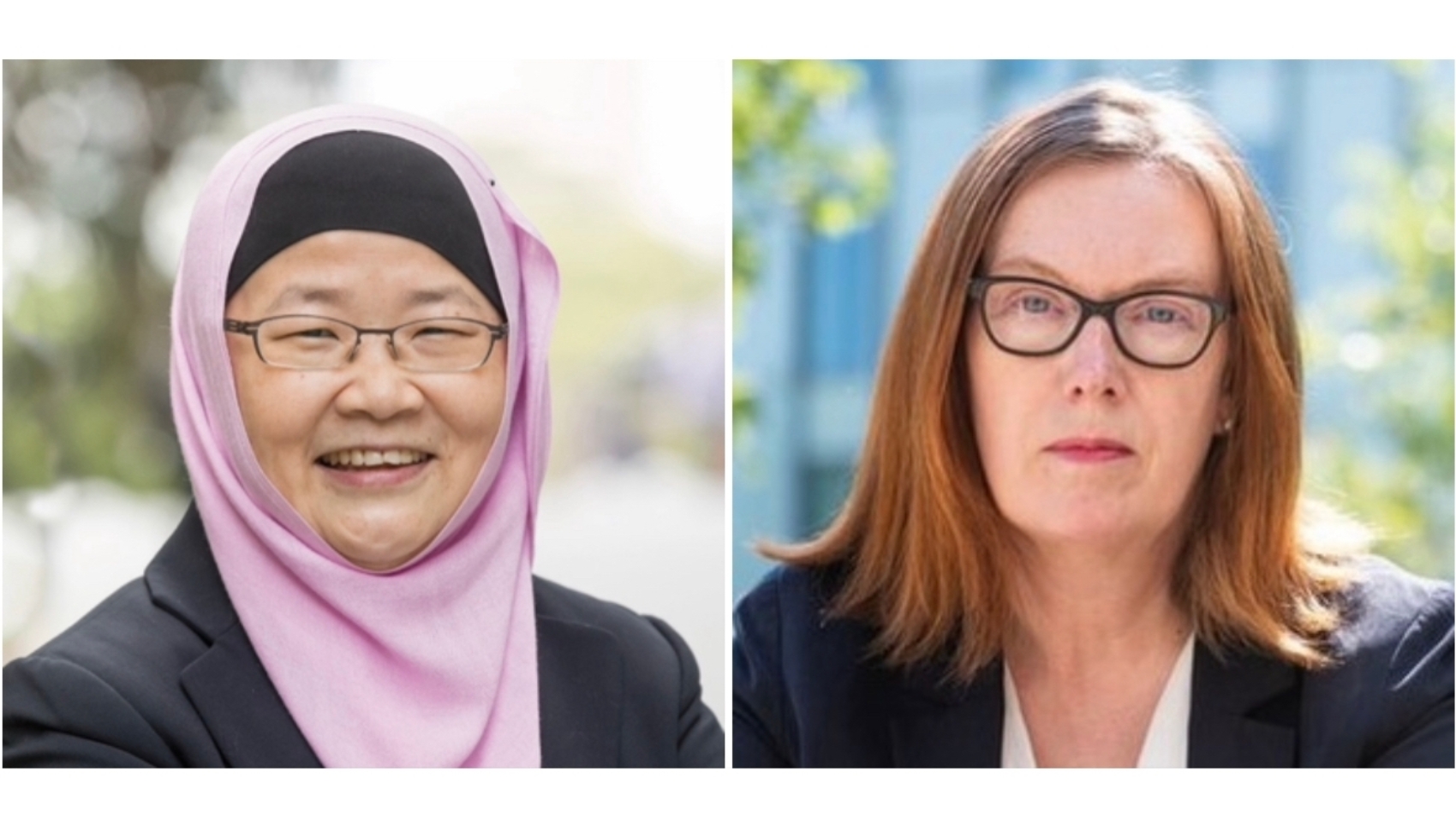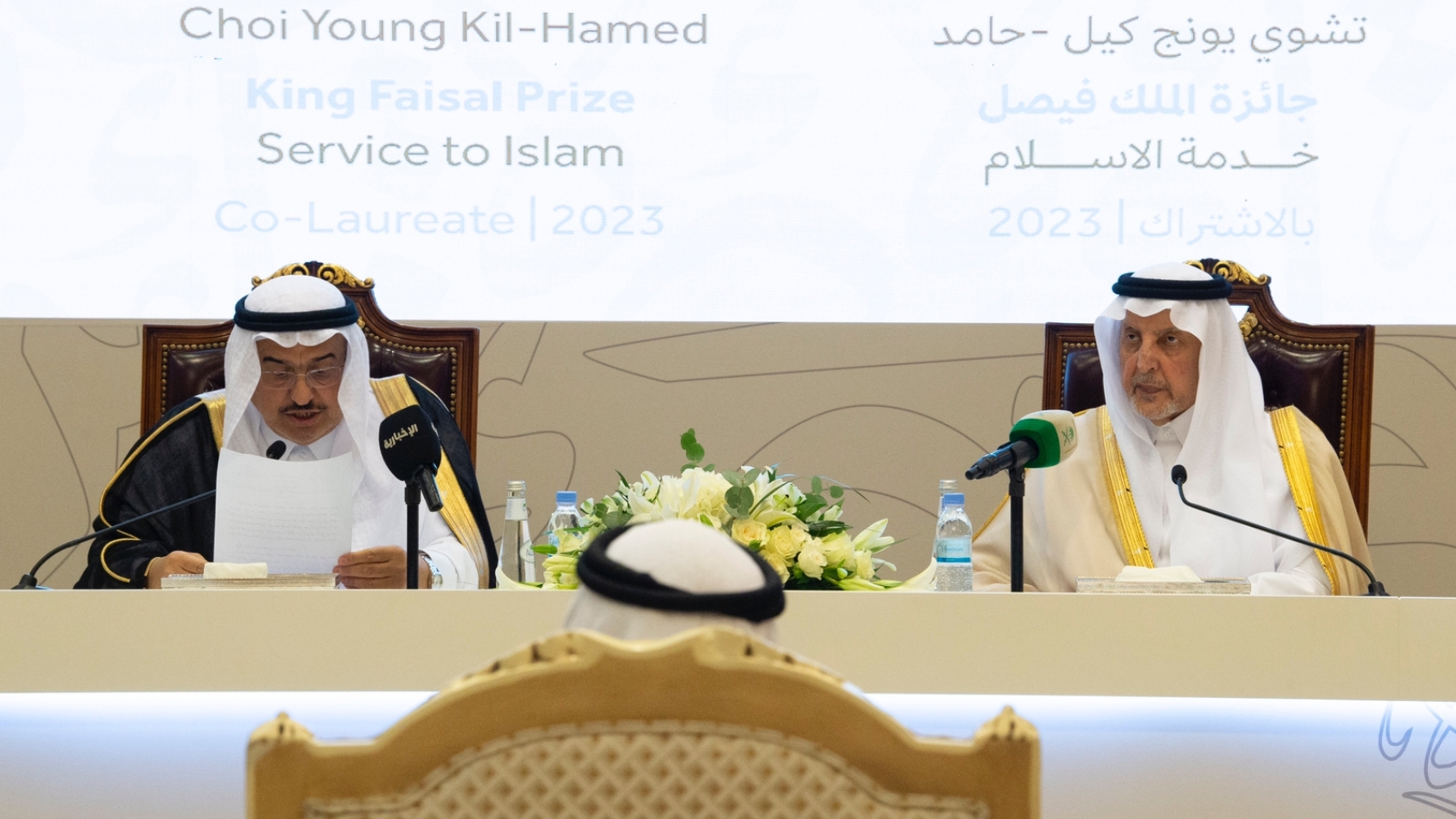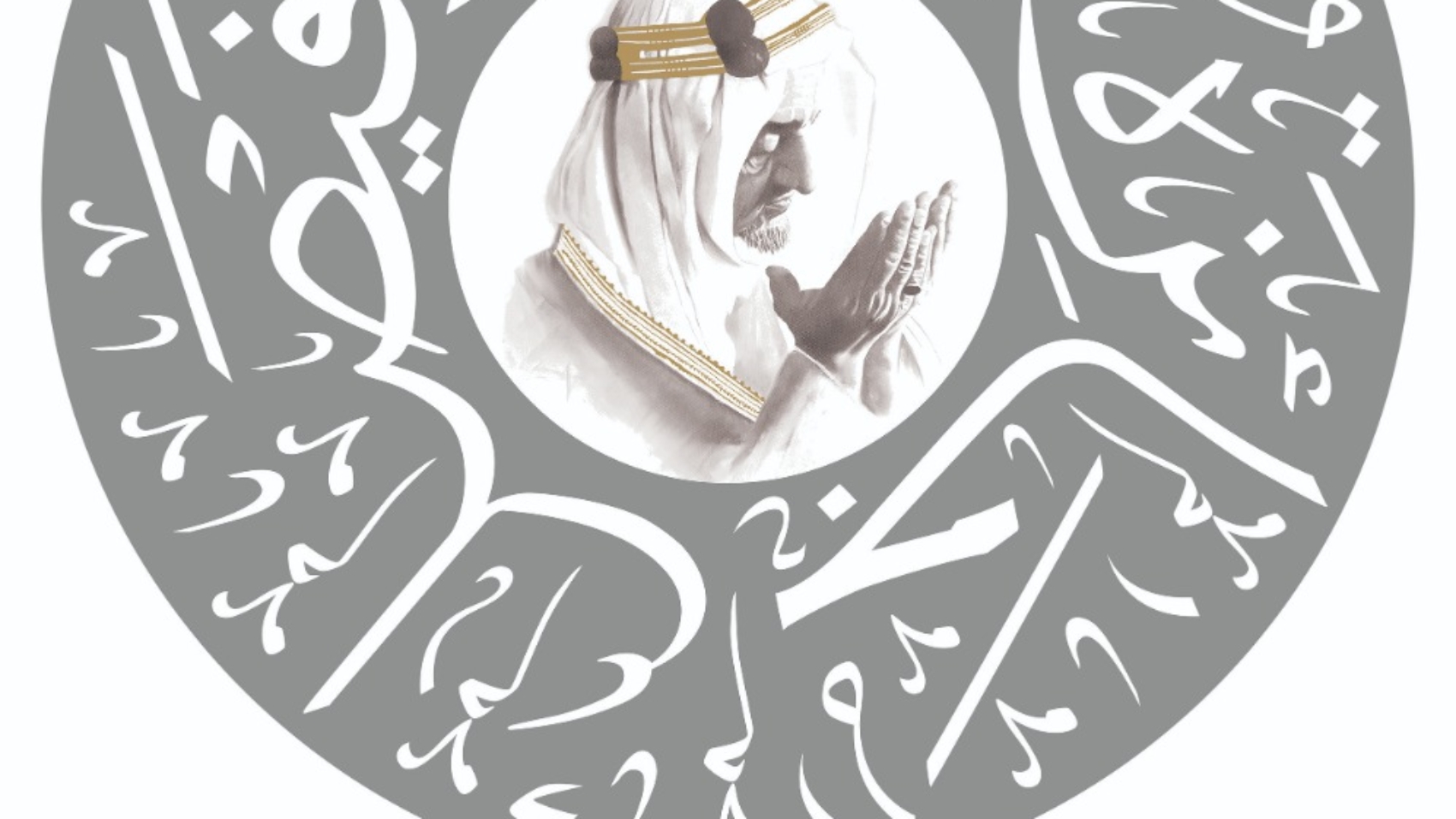Two women scientists were announced King Faisal Prize for Medicine and Science laureates for 2023: a Covid-19 vaccine developer and a nanotechnology scientist. Six others were announced King Faisal Prize laureates for having enriched humanity with key and invaluable achievements and discoveries in the fields of Medicine, Science, Arabic Language & Literature, Islamic Studies, and Serving Islam.
The woman behind Oxford–AstraZeneca COVID-19 vaccine, Professor Sarah Gilbert, the Saïd Chair of Vaccinology in the Nuffield Department of Medicine at Oxford University, was selected to receive King Faisal Prize in medicine. She has co-created the vaccine which has been in use in more than 180 countries saving billions of lives due to its efficiency, low cost and accessibility.
The vaccine is called “ChAdOx1 nCoV-19” and was achieved in 10 months of work using a novel approach. Instead of the traditional vaccines’ method which uses a weakened or killed form of the original infection and requires a long time to develop in the human body, Gilbert genetically modified a weakened version of a common virus which caused a cold in chimpanzees to be injected in humans without causing an infection. This modified virus became the essence of the vaccine developed by Dr. Gilbert against coronavirus carrying the genetic instructions for the coronavirus spike protein. When entering the body cells, the virus uses a genetic code or instructions to produce the specific surface spike protein of the coronavirus inducing an immune response and preparing the immune system to attack coronavirus if it infects the body.
Dr. Gilbert’s innovative vaccine technologies used lately for COVID-19 were also applied by her to Malaria, Ebola, Influenza, and MERS, with clinical trials of the latter taking place in the UK and in the Kingdom of Saudi Arabia. She also worked on developing a medicine for it. In fact, the patented ChAdOx1 technology was developed by Dr. Gilbert and other researchers at the University of Oxford in 2012. In 2014, she led the first trial of an Ebola vaccine after a large outbreak of the disease in West Africa. It was because of the ChAdOx1 technology and her accumulated research that the Oxford–AstraZeneca COVID-19 vaccine was produced so quickly.
The other woman scientist selected to receive King Faisal Prize in science is Professor Jackie Yi-Ru Ying; the A*STAR Senior Fellow and Director at NanoBio Lab, Agency for Science, Technology, and Research. She was chosen for her work on the synthesis of various advanced nanomaterials and systems, and their applications in catalysis, energy conversion, and biomedicine. Her inventions have been used to solve challenges in different fields of medicine, chemistry, and energy. Her development of stimuli-responsive polymeric nanoparticles led to a technology which can autoregulate the release of insulin, depending on the blood glucose levels in diabetic patients without the need for external blood glucose monitoring. Dr. Ying’s laboratory has pioneered the synthesis of mesoporous and microporous transition metal oxides; a class of nanomaterials used in energy storage and conversion, by supramolecular templating (organizing or assembling entities).
Dr. Ying has more than 180 primary patents and patent applications; 32 of which have been licensed to multinational and start-up companies for a range of applications in nanomedicine, drug delivery, cell and tissue engineering, medical implants, biosensors, medical devices, and others. Her work is at the intersection of nanotechnology and technical medicine and has culminated in the establishment of six successful start-ups and spinoff companies.
Two other Medicine and Science Prize laureates were selected for 2023: Professor Dan Barouch, the Director of the Center for Virology and Vaccine Research at Beth Israel Deaconess Medical Center and the William Bosworth Castle Professor of Medicine at Harvard Medical School, and Professor Chad Mirkin, the Director of the International Institute for Nanotechnology (IIN) and the Rathmann Professor of Chemistry and Professor of Medicine, Materials Science and Engineering, Biomedical Engineering, and Chemical and Biological Engineering at Northwestern University, respectively.
Professor Dan Barouch developed another COVID-19 viral vector vaccine; the Johnson & Johnson vaccine, using the same technology behind the Oxford–AstraZeneca COVID-19 vaccine. It was administered to hundreds of millions of people worldwide saving their lives. The vaccine was achieved quickly, like Oxford vaccine, in 13 months and was based on engineering a harmless adenovirus (called Ad26) which was a common type of virus that caused mild cold symptoms when it infected a person. The genetically modified virus carries the genetic code for the coronavirus spike protein. After the injection of adenovirus, the cells use the genetic code and produce a spike protein to train the immune system, creating antibodies and memory cells to protect against COVID-19 infection.
The development of the Ad26 vaccine platform was the result of research work and clinical trials to develop vaccine candidates for multiple pathogens of global significance, including HIV and Zika virus, and tuberculosis, making Professor Barouch a pioneer in the creation of a series of vaccine platform technologies that can be used when developing vaccines for emerging infectious diseases, such as COVID-19. Moreover, he led the world’s first demonstration of Zika vaccine protection in preclinical studies and launched a series of phase 1 Zika vaccine clinical trials.
The work of Professor Chad Mirkin, which has been at the forefront of nano chemistry for over three decades, has helped define the modern age of nanotechnology. He is widely recognized for his invention of spherical nucleic acids (SNAs), which are nanostructures composed of nucleic acids in a spherical configuration which enter human cells and tissues and overcome biological barriers, making it possible to detect or treat a disease on the genetic level. More than 1,800 products for medical diagnostics, therapeutics, and life science research were based on this technology.
Professor Mirkin is a pioneer in the field of artificial intelligence-based materials discovery. He invented dip-pen nanolithography, which was described by National Geographic as one of the “top 100 scientific discoveries that changed the world”; and HARP (high-area rapid printing) technology, a 3D printing process that can manufacture different products like ceramics at record-breaking throughput.
In addition to Medicine and Science, King Faisal Prize recognized this year the achievements of outstanding thinkers and scholars in the fields of Arabic Language & Literature and Islamic Studies, and honored exemplary leaders who played a pivotal role in serving Islam, Muslims, and humanity at large.
Professor Abdelfattah Kilito was announced the laureate for the “Arabic Language and Literature” prize focusing on “Classical Arabic Narrative and Modern Theories”. He has been a visiting professor and lecturer at the New Sorbonne, Harvard University, Princeton University, the University of Chicago, the University of Oxford, and the College de France. Professor Robert Hillenbrand, Honorary Professorial Fellow in the department of Islamic and Middle Eastern Studies (IMES) at the University of Edinburgh, was selected to receive the “Islamic Studies” prize in “Islamic Architecture”. His work was distinguished by its geographic and temporal expansiveness, which covered North Africa, Egypt, Palestine, and Central Asia, and spanned from the early Islamic period till the 19th Century.
As for the Service to Islam Prize, Professor Choi Young Kil-Hamed and His Excellency Shaikh Nasser bin Abdullah Al Zaabi were this year’s laureates.
Since 1979, King Faisal Prize in its 5 different categories has awarded 290 laureates who have made distinguished contributions to different sciences and causes. Each prize laureate is endowed with USD 200 thousand; a 24-carat gold medal weighing 200 grams, and a Certificate inscribed with the Laureate’s name and a summary of their work which qualified them for the prize.


